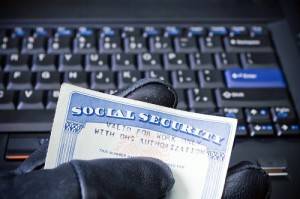The 10 Most Common Cybercrimes in California
California is the technology capital of the world. Northern California’s Silicon Valley houses technology giants such as Google, Apple and Facebook. All roads lead to California for high-tech innovation and cyber development. But California also holds the distinction of being the cybercrime capital of the U.S., according to attorney Jeremy Matz.1

A 2014 study on the cost of cybercrime estimates that internet-based attacks have risen 78 percent since 2013.2 Areas that host large businesses such as high-tech companies and financial institutions are most prone to attacks.3 Such companies have made their homes in Santa Clara and Alameda County, but Los Angeles has also become vulnerable to cybercrimes, according to the San Jose Mercury News.4
Let’s take a look at some of the most common cybercrimes in California and the harsh punishment you face if you are accused of a cybercrime.
1. Hacking (18 U.S.C. Section 1030)
A gateway to other cybercrimes, hacking occurs when you access a computer or personal data on a computer without the owner’s permission. Recently, Target Corporation had its servers hacked, and more than 40 million customers’ credit and debit card information was accessed.5 In the last 12 months, hacking has accounted for the largest number of compromised personal records, affecting more than 43 million Americans.6
Hacking is a federal crime under 18 U.S.C. Section 1030. A misdemeanor conviction is punishable by up to one year in prison and a $100,000 fine. A felony conviction is punishable by up to 10 years in prison and a fine of up to $250,000.
2. Phishing
Phishing occurs when you try to obtain personal information such as login information and credit card details by posing as a legitimate entity or agency. The classic “Nigerian email” scam is an example of phishing.
However, phishing can also occur when you send an email containing a virus or a link to malware. If a user clicks on the link, you could get access to their computer.7 Because there are so many different ways to “phish” for information, phishing accounts for most cybercrime. Approximately 2.2 million Americans have their identities stolen through phishing schemes every year, costing victims more than $1 billion combined.8
There are no specific laws regarding phishing, but you could be charged with credit card fraud, identity theft or another crime if you are arrested for phishing.
3. Identity Theft (18 U.S.C. Section 1028)

The LAPD estimates that in Los Angeles alone, 10,000 people have their identities stolen each year.9 Over the past 13 years, identity theft has been the number one complaint received by the Federal Trade Commission.10
In California, identity theft is typically charged as fraud under PC 530.5, but if you use the Internet to steal another person’s identity, you could be charged with a federal crime under 18 U.S.C. Section 1028.
If you are charged with federal identity theft, you face up to 15 years in prison and fines of up to $250,000.
4. Tax Refund Fraud (26 U.S.C. Section 7206)
Tax refund fraud involves obtaining a Social Security number from someone who is not filing a tax return—usually a deceased person. This information is typically gained through phishing or purchasing the data through the black market. In order to receive a large tax refund, you will make up a wage and file a return with the IRS.11
Under 26 U.S.C. Section 7206, if you commit tax fraud, you could be sentenced to up to three years in prison and ordered to pay up to $250,000 in fines.
5. Theft of Sensitive Data (18 U.S.C. Section 1030)
Sensitive data includes customer information, employee information, trade secrets, credit card details and source codes that are typically stored by a business. This crime occurs when you copy this information onto a flash drive and sell it to competitors or use confidential information to compete with the entity’s business.12
Theft of sensitive data falls under the Computer Fraud and Abuse Act (18 U.S.C. Section 1028). How you are sentenced will depend on the facts of your case, but you face severe punishment if you are convicted of this crime.
6. Theft of Intellectual Property (18 U.S.C. Section 2319)
Intellectual property includes copyrighted materials such as music, movies and books. However, it can also include a company’s product blueprints. For example, you could steal Apple’s blueprint for the next iPhone and sell it to competitors such as Samsung and Nokia.13
Under 18 U.S.C. Section 2319, the penalties for this crime could include up to 10 years in prison and fines of up to $2,500, but how you will be charged depends on the facts of your case. That is why it is important to consult with a criminal defense attorney immediately if you are facing charges of theft of intellectual property.
7. Drug Trafficking (21 U.S.C. Section 841)

Buying products has been made easier by sites such as Amazon and Overstock. Buying drugs, including heroin, cocaine and meth, was also easy to do on the Internet via the website SilkRoad up until October 2013.
SilkRoad customers could use the virtual currency Bitcoins to purchase drugs online anonymously and have them delivered through UPS or Fed-Ex. The site’s founder and operator Ross Ulbricht earned nearly $80 million from the site until his arrest.14
Because the Internet has made delivering, distributing, and dispensing controlled substances easier, using it to violate federal drug laws has become increasingly common.15
If you are convicted of federal drug trafficking under 21 U.S.C. Section 841, you could face 40 years to life in prison, but your sentence will depend on the circumstances of your case.
8. Blackmail/Extortion (18 U.S.C. Section 1951)
While you may not think of extortion as a cybercrime, it could be easier to extort someone through email or social media. The crime of extortion involves threatening to expose damaging information about a person unless they pay you or perform acts that you have asked them to do.16
Under 18 U.S. Code Section 1951, extortion is a felony federal crime punishable by up to 20 years in prison and fines of up to $10,000.
9. Electronic Harassment (California Penal Code Section 646.9)

Electronic harassment involves using the Internet to annoy, abuse, threaten or harass another person. Today, this is most commonly accomplished through social media.
Often referred to as cyberstalking, electronic harassment could be charged as a misdemeanor or a felony under California Penal Code Section 646.9. A misdemeanor charge is punishable by up to one year in jail, while felony cyberstalking could be punished by up to five years in prison.
10. Child Pornography (18 U.S.C. Section 2252)
Under California Penal Code Section 311, you could be sentenced to up to six years in prison. But if you use the Internet to distribute child pornography, you could be charged with a federal crime.
Federal law calls for a much harsher punishment for child pornography crimes compared to California law. Under U.S. Code 18 Section 2252(a)(4)(b), you could be sentenced to up to 40 years in prison and fined up to $250,000 if you are convicted of distributing child pornography.
Call the Criminal Defense Attorneys at Wallin & Klarich Today
If you are accused of a cybercrime, you need to speak with an experienced criminal defense attorney immediately. At Wallin & Klarich, our skilled attorneys have been successfully helping our clients in their time of legal need for over 40 years. We can help you navigate the complex laws surrounding cybercrimes.
With offices located in Orange County, San Bernardino, Los Angeles, Torrance, Riverside, West Covina, Victorville, Ventura, San Diego and Sherman Oaks, our team of skilled attorneys is available to help you no matter where you work or live.
Call us today at (877) 4-NO-JAIL or (877) 466-5245 for a free phone consultation. We will get through this together.
1. [http://www.corpcounsel.com/id=1202661907920/California-Is-Named-the-US-Capital-of-Cyberattacks]↩
2. [https://oag.ca.gov/cybersecurity]↩
3. [Id.]↩
4. [http://www.mercurynews.com/california/ci_25387155/report-california-is-top-cyber-crime-target-u]↩
5. [http://money.cnn.com/2013/12/22/news/companies/target-credit-card-hack/]↩
6. [http://www.privacymatters.com/identity-theft-information/identity-theft-computer-hacking.aspx]↩
7. [Id.]↩
8. [http://oag.ca.gov/consumers/general/spam_phishing]↩
9. [http://www.lapdonline.org/get_informed/content_basic_view/1364]↩
10. [Id.]↩
11. [http://www.aicpa.org/interestareas/forensicandvaluation/resources/electronicdataanalysis/downloadabledocuments/top-5-cybercrimes.pdf]↩
12. [Id.]↩
13. [Id.]↩
14. [http://topinfopost.com/2013/10/03/fbi-arrests-29-year-old-mastermind-of-billion-dollar-internet-drug-blackmarket]↩
15. [http://www.complex.com/pop-culture/2012/11/the-10-most-common-internet-crimes/blackmail-extortion]↩
16. [Id.]↩


